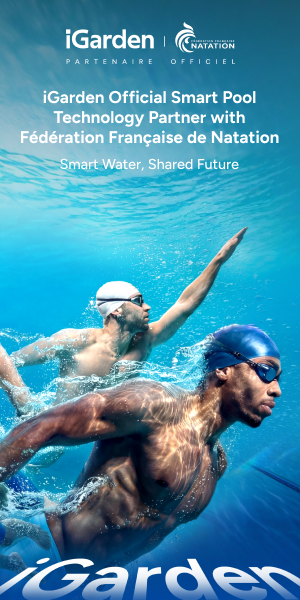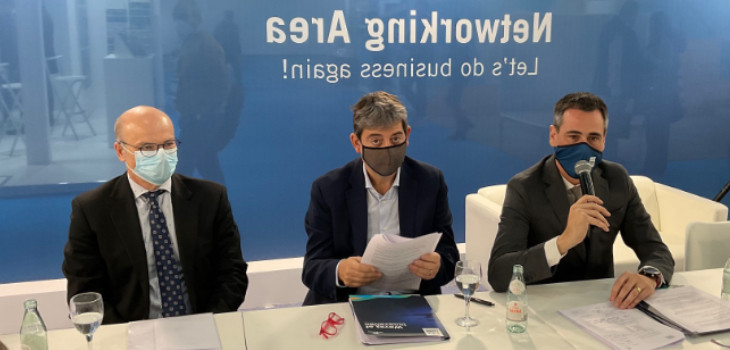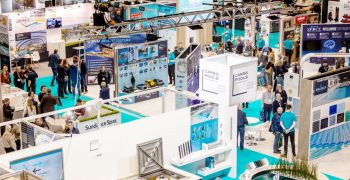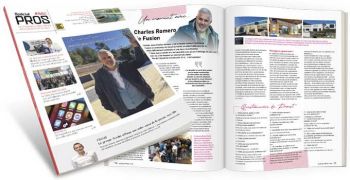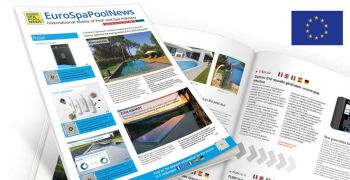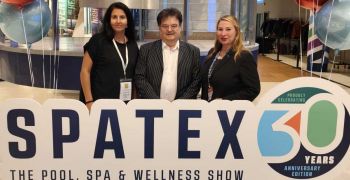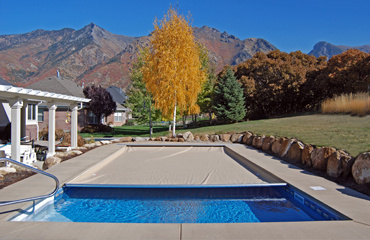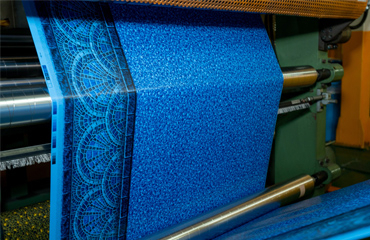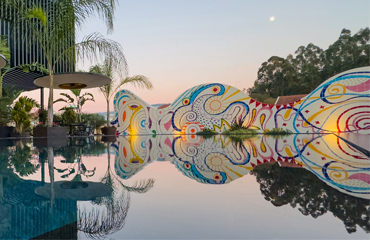Live from the Piscina & Wellness Barcelona 2021 fair, Eloi Planes, Ángel Celorrio and Pedro Arrebola present to us the sectoral Barometer drawn up by the ASOFAP. 30,000 new pools will be built in 2021, according to ASOFAP association.
An exceptional year for the Spanish pool sector, with business increasing by 10%
2021 is proving to be a magnificent year for the Spanish pool industry, whose average business has grown by 10%, while the main manufacturers and distributors are reporting increases of up to 25%, according to the sectoral Barometer drawn up by the ASOFAP (Spanish Association of Swimming Pool Professionals). The pandemic has led to soaring demand for the construction of pools, especially ones for private use, with 30,000 new units (5.2% more than last year). The favourable business climate suggests a positive outlook for 2022.
The Barometer, presented within the framework of the Piscina & Wellness Barcelona fair that opened this morning at Fira de Barcelona's Gran Via venue, reflects the extraordinary boom in the sector, which has recorded a turnover totalling almost 1,400 million euros this year. The course of this powerful niche industry, made up of 2,500 companies directly and indirectly employing 70,000 people, has been an upward one in recent years and, since 2018, it has grown at double the average of the Spanish GDP (or even triple in some years).
The report also highlights the stability of the business in all the segments (private and community pools and others for public use), based on the opinions and expectations of the entire value chain (manufacturers and distributors of products, equipment and technologies for pools, constructors, installers and maintenance companies throughout the country). As a result, almost 95% of companies are equalling or improving their turnover in comparison with 2020. At the same time, 90% have expanded their customer portfolios and workforces, 75% have launched new projects and 40% have broadened their geographical area of operations in 2021.
According to ASOFAP president Pedro Arrebola, "the vast majority of companies in the pool sector in Spain are growing strongly with double digit figures, especially manufacturers and distributors, which are registering rises of up to 25%. The outlook for the coming year is excellent; we're confident that the demand will be sustained, as more and more users are placing value on the pool and willing to invest in one as an asset linked to health, well-being and leisure".
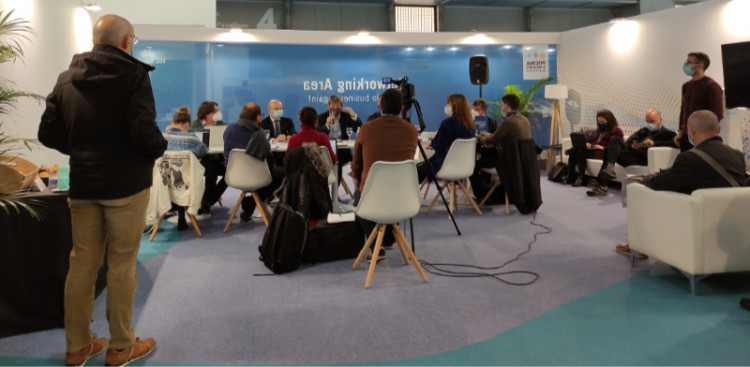
The sectoral Barometer presented live from Piscina & Wellness 2021
New construction increases
Spain is the fourth country in the world and the second in Europe in terms of the number of swimming pools, with a current total of 1.35 million units, including those for residential, public and collective use. It is, therefore, a mature market with a special appeal in terms of equipment, maintenance, refurbishment and the comprehensive renovation of the facilities, although new construction enjoys a margin for growth.
This is exactly what has happened this year. The ASOFAP puts the number of new pools built at 30,000, 5.2% more than in 2020, which was also a good year. The above is confirmed by the Barometer, which shows how new construction now accounts for 40% of the main business lines in the sector, while renovation accounts for 26.3% and pool maintenance 33.7%.
Private single-family use is the area in which the biggest upturn in new construction is taking place, due in particular to the pandemic: "the restrictions on travel and mobility and having to spend more time at home have encouraged many families to invest in a swimming pool if they have a small space for one", explained Arrebola.
Moreover, set against 2020, the demand for public and community swimming pools has significantly increased; "following the re-opening, investments in aquatic facilities are being reactivated, both at fitness centres and in the hotel and campsite sector, because they're important elements that influence the profitability of these establishments", stated Arrebola.
Connectivity and sustainability
The new construction comes with the equipping of these aquatic facilities. In this regard, among the five product categories most in demand in 2021, salt electrolysis equipment continues to top the ranking, as it has done in the last two years. In second position lie robot pool cleaners, which greatly facilitate maintenance by means of their connectivity, followed by heat pump air conditioning systems, elements that help to extend the bathing season. Completing the list are LED lighting systems and covers and canopies, hinting at a greater environmental awareness among users.
In the same vein, the Barometer also points to the aspects of the sector's products and services that are most highly rated by customers: The pool's low energy consumption is the most important factor for more than half the users, followed by ease of maintenance, connectivity and home automation, high-quality pool materials and a lengthy guarantee period for the installation.
According to Arrebola, "sustainability and connectivity characterise users' preferences and they're the main vectors driving the innovation of companies in the sector, as can be seen in the solutions on display this week at Piscina & Wellness Barcelona". The president of the ASOFAP predicts that "digitisation will increase and this will generate new services related to pools, particularly ones linked to the automation of maintenance processes and improvements in the experience of using the aquatic facilities".
Prospects and challenges for 2022
The excellent performance of the pool sector is also reflected in the Business Confidence Index, which, standing at 61 points (27.3 points higher than in 2020), measures both the feelings and confidence of entrepreneurs and real business data. 96% of the companies that were asked regard their business prospects for 2021 as favourable or normal and 93% maintain them with a view to 2022.
As the priority challenges to be addressed, most companies point to the lack of skilled labour, professional intrusion due to the sharp increase in demand and the promotion of training and specific official qualifications related to the installation and maintenance of pools. The rising prices of materials and services and the lack of supplies are two new added concerns for the sector, which has not escaped the current international situation. There is also a will to move towards the harmonisation of the legislation of the Autonomous Communities, a process that would facilitate business activity involving different regions.


